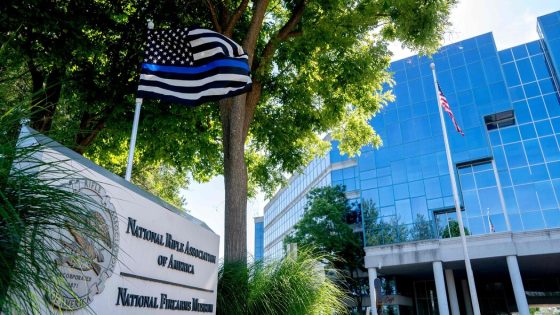The Supreme Court sided with the National Rifle Association on Thursday, saying it could pursue a First Amendment claim against a New York state official who had encouraged companies to stop doing business with it after the 2018 school shooting in Parkland, Fla.
Justice Sonia Sotomayor, writing for a unanimous court, found that the N.R.A. had plausibly claimed a violation of the First Amendment, sending the case back to the U.S. Court of Appeals for the Second Circuit, in New York, for further proceedings.
The N.R.A., in asking the Supreme Court to hear the case, cited what it described as the enormous regulatory power of the state official, Maria T. Vullo, a former superintendent of the New York State Department of Financial Services. The N.R.A. accused Ms. Vullo of applying “pressure tactics — including back-channel threats, ominous guidance letters and selective enforcement of regulatory infractions” and warned of wide-ranging consequences of a ruling against it. A court decision siding with Ms. Vullo, the group warned, would open the door to government officials making similar pleas about hot-button issues like abortion and the environment.
Ms. Vullo, in court filings, has pushed back again the N.R.A.’s allegations that she undermined the First Amendment.
The case began in 2017, when the New York Department of Financial Services started investigating an insurance product known as Carry Guard, which provided coverage for various issues arising from the use of a firearm, such as personal injury and criminal defense.
The program was brokered, serviced and underwritten by insurance companies and included the N.R.A.’s name, logo and endorsement.
The department regulates more than 1,400 companies and more than 1,900 financial institutions. It concluded that Carry Guard violated state insurance law, in part by providing liability coverage for injury from the wrongful use of a firearm. The department entered into consent decrees with the insurance groups and imposed civil penalties.
After a mass shooting in 2018, when a former student opened fire at a high school in Parkland, Fla., the department began to re-evaluate “the implications of regulated entities’ relationships with gun-promotion organizations,” according to legal filings for Ms. Vullo.
The department issued two memos, one to insurance companies and another to financial institutions, titled “Guidance on Risk Management Relating to the N.R.A. and Similar Gun Promotion Organizations.”
These documents encouraged regulated institutions “to review any relationships they have with the N.R.A. or similar gun promotion organizations.”
The Vullo case is one of two concerning when government advocacy crosses a constitutional line into coercion.
The other, Murthy v. Missouri, involves a push by Republican-led states to curb the Biden administration’s efforts to crack down on what it viewed as misinformation on social media.
Source Agencies




